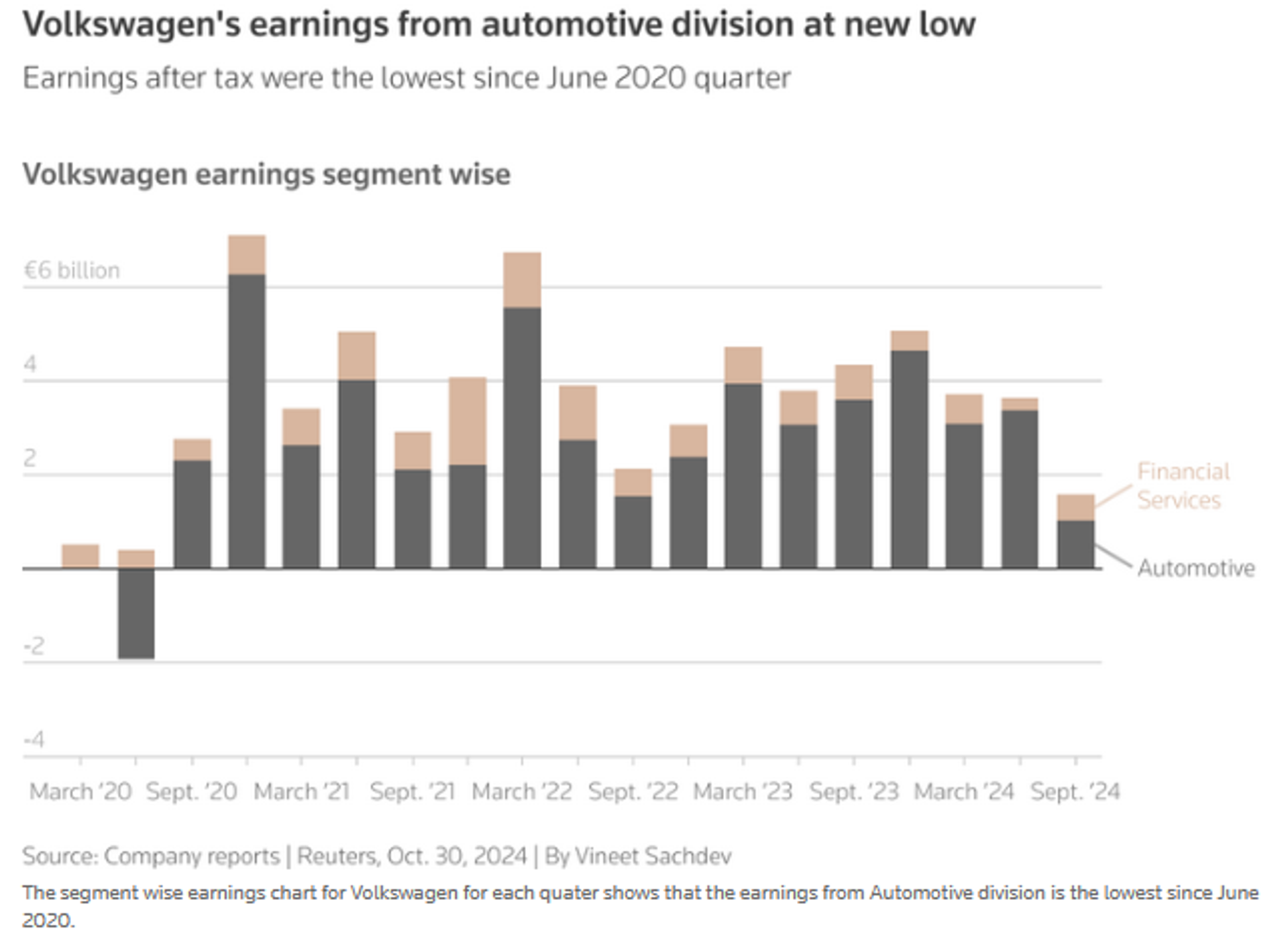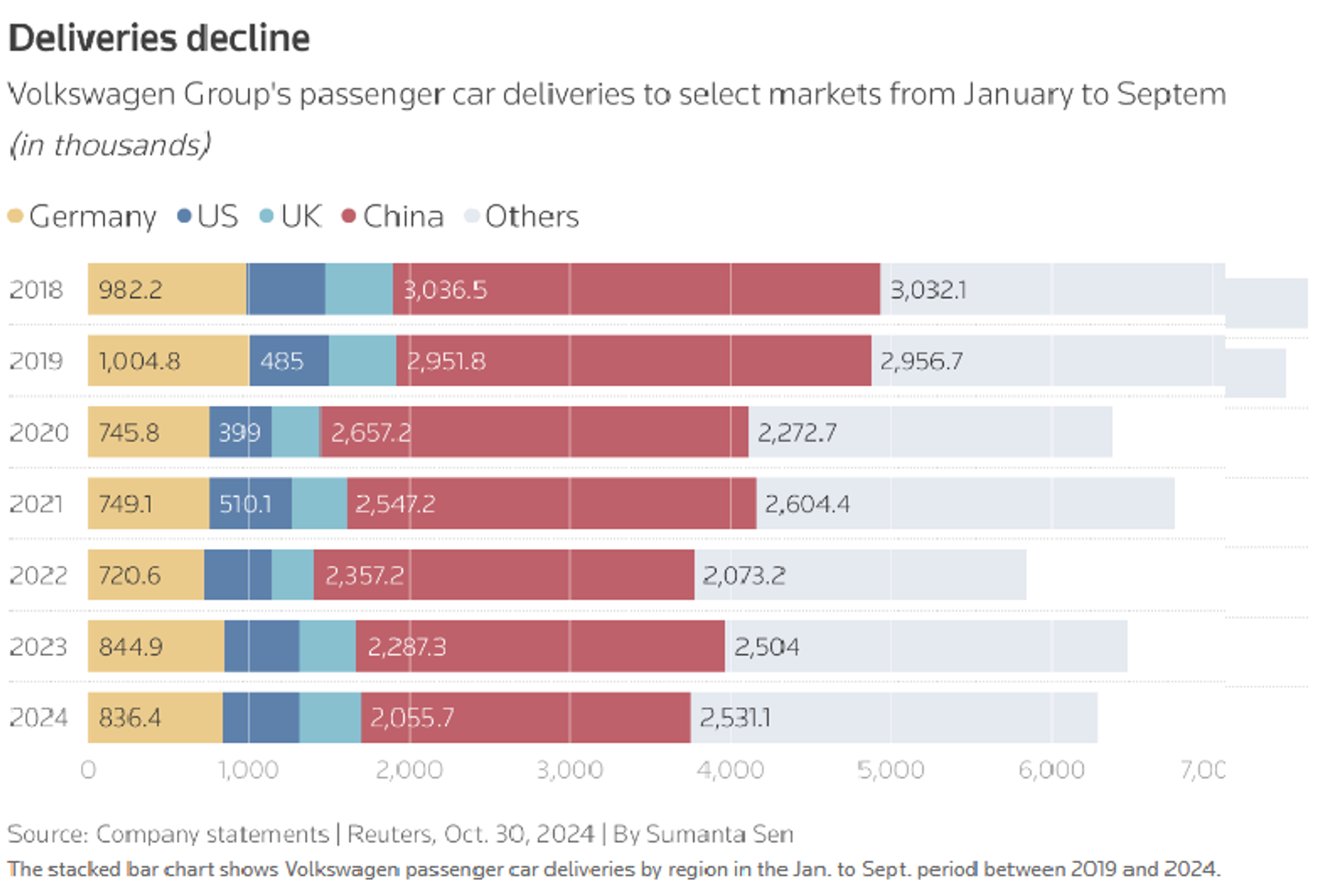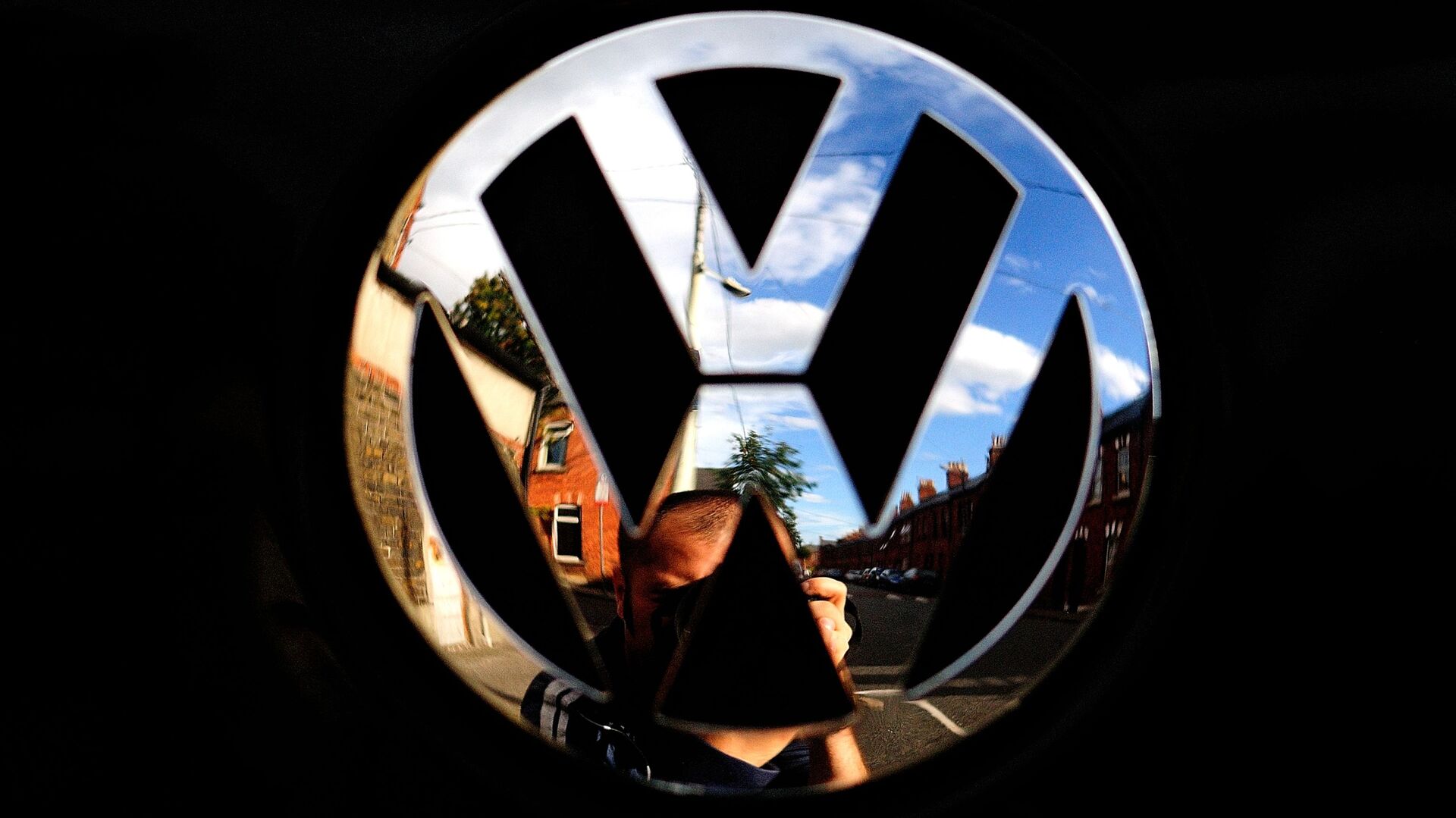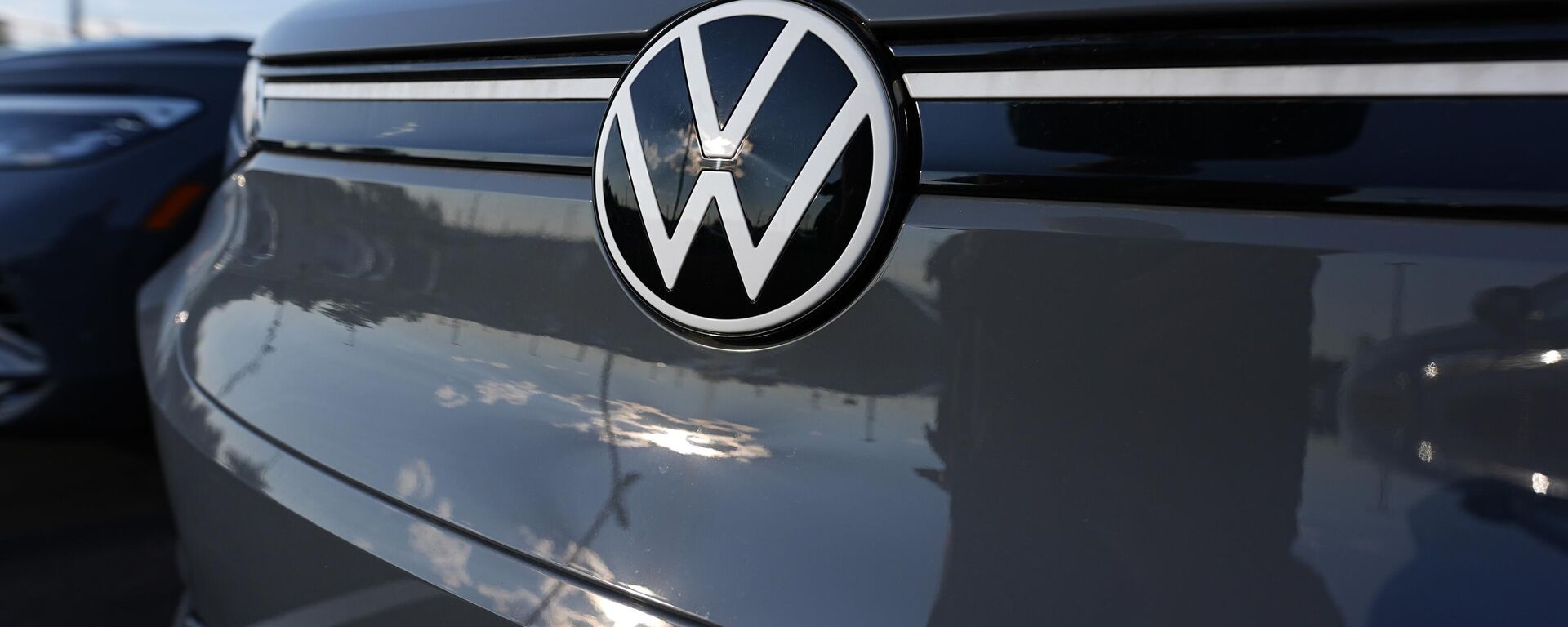https://sputnikglobe.com/20241031/pummeled-by-shrinking-sales-volkswagen-mulls-pay-cuts-as-threats-of-union-strikes-looms-1120734882.html
Pummeled by Shrinking Sales, Volkswagen Mulls Pay Cuts as Threats of Union Strikes Looms
Pummeled by Shrinking Sales, Volkswagen Mulls Pay Cuts as Threats of Union Strikes Looms
Sputnik International
Battered by shrinking sales, Volkswagen is asking its workers to agree to a 10% pay cut and revised bonus system.
2024-10-31T09:05+0000
2024-10-31T09:05+0000
2024-10-31T09:05+0000
world
volkswagen
germany
european union (eu)
china
business
https://cdn1.img.sputnikglobe.com/img/07e5/03/1e/1082494187_0:75:3060:1796_1920x0_80_0_0_e6b021f6e287cc34fb71f99bf121d486.jpg
Battered by shrinking sales, Volkswagen is asking its workers to agree to a 10% pay cut and revised bonus system.The beleaguered German automotive giant contends that such drastic cost-cutting measures are the only way to avoid shutting down factories and retain competitive status.The carmaker’s proposals were hailed as a “first small signal” of progress in negotiations by Daniela Cavallo, the automaker’s top labor leader. However, she added that shuttering plants isn’t completely off the table. Overall, VW is considering more than 10 billion euros ($10.8 billion) in cost cuts, according to its finance chief Arno Antlitz. Volkswagen’s next round of talks with labor unions is set for November 21. Failing further breakthroughs, strikes are likely from December 1. Ahead of the negotiations, Volkswagen reported a 42% drop in third-quarter profit – its lowest level in three years. Its deliveries to China fell by 15% to 711,500 vehicles in the third quarter, and global sales shrank to 2.176 million vehicles. High energy prices spurred by Western-backed sanctions against Moscow, the fiscal crunch gripping the German government, and the escalating trade spat between Brussels and Beijing over Chinese electric vehicle imports have wreaked havoc on the car making industry and, on a broader scale, the economy of what was once Europe’s powerhouse.VW's problems feed into the overall decline of the European car industry. The high energy prices spurred by Western-backed sanctions against Moscow, self-inflicted loss of access to cheap Russian natural gas, sabotage of the Nord Stream pipeline, the fiscal crunch gripping the German government, and the escalating trade spat between the European Union and China over cheaper and more popular Chinese electric vehicle imports are all pieces of the puzzle. The result, on a broader scale, is Germany's deindustrialization. Hence the wave of strikes by its workers, increasingly feeling the sting of sky-high inflation and stagnant growth.
https://sputnikglobe.com/20240906/zombie-volkswagen-consequence-of-years-of-foolish-german-government-policy-1120060138.html
germany
china
Sputnik International
feedback@sputniknews.com
+74956456601
MIA „Rossiya Segodnya“
2024
News
en_EN
Sputnik International
feedback@sputniknews.com
+74956456601
MIA „Rossiya Segodnya“
Sputnik International
feedback@sputniknews.com
+74956456601
MIA „Rossiya Segodnya“
what's wrong with volkswagen, volkswagen plant closures, volkswagen economic trouble, germany economic collapse scholz, ukraine proxy war german economy, german economy, nord stream explosion, deindustrialization, rising costs, rising prices, inflation in germany, why is europe's car industry in crisis,
what's wrong with volkswagen, volkswagen plant closures, volkswagen economic trouble, germany economic collapse scholz, ukraine proxy war german economy, german economy, nord stream explosion, deindustrialization, rising costs, rising prices, inflation in germany, why is europe's car industry in crisis,
Pummeled by Shrinking Sales, Volkswagen Mulls Pay Cuts as Threats of Union Strikes Looms
German carmaker Volkswagen has been forced to consider plant closures, termination of employee protections agreed with unions, and other cost-cutting measures amid surging energy prices, increasingly stiff competition from China, and European Union policy decisions that have stripped the company of its competitive advantage.
Battered by shrinking sales,
Volkswagen is asking its workers to agree to a
10% pay cut and revised bonus system.
The beleaguered German automotive giant contends that such drastic cost-cutting measures are the only way to avoid
shutting down factories and retain competitive status.
The carmaker’s proposals were hailed as a “first small signal” of progress in negotiations by Daniela Cavallo, the automaker’s top labor leader. However, she added that shuttering plants isn’t completely off the table.
Overall, VW is considering more than 10 billion euros ($10.8 billion) in cost cuts, according to its finance chief Arno Antlitz.
Volkswagen’s next round of talks with labor unions is set for November 21. Failing further breakthroughs, strikes are likely from December 1.
Ahead of the negotiations, Volkswagen reported a 42% drop in third-quarter profit – its lowest level in three years. Its deliveries to China fell by
15% to 711,500 vehicles in the third quarter, and global sales shrank to
2.176 million vehicles.
High energy prices spurred by Western-backed sanctions against Moscow, the fiscal crunch gripping the German government, and the escalating trade spat between Brussels and Beijing over Chinese electric vehicle imports have wreaked havoc on the car making industry and, on a broader scale, the economy of what was once Europe’s powerhouse.
VW's problems feed into the overall decline of the European car industry. The high energy prices spurred by
Western-backed sanctions against Moscow, self-inflicted loss of access to cheap Russian natural gas, sabotage of the Nord Stream pipeline, the
fiscal crunch gripping the German government, and the escalating
trade spat between the European Union and China over cheaper and more popular Chinese electric vehicle imports are all pieces of the puzzle. The result, on a broader scale, is Germany's deindustrialization. Hence the
wave of strikes by its workers, increasingly feeling the sting of sky-high inflation and stagnant growth.







